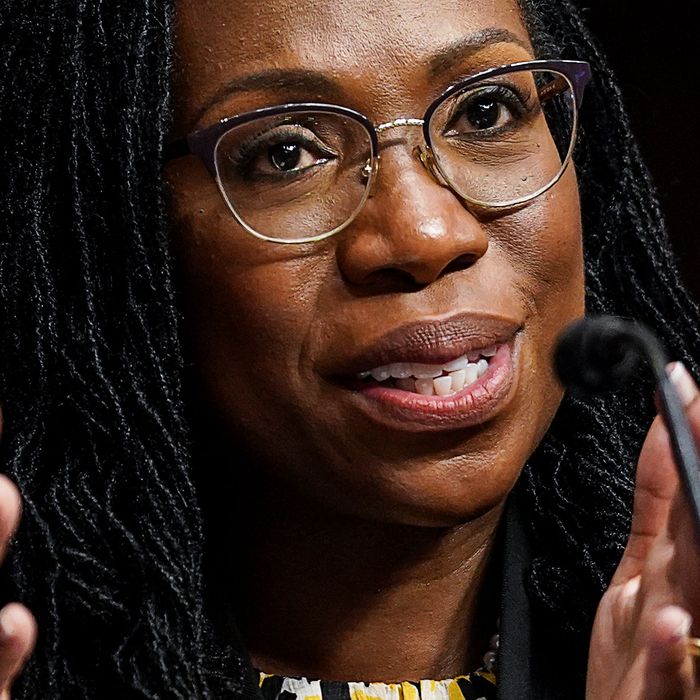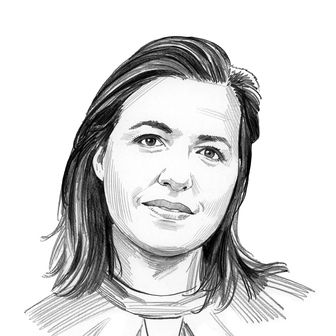
To the list of obvious firsts, a Justice Ketanji Brown Jackson would add another: the first former public defender to sit on the United States Supreme Court. It’s an entry on her résumé that a few years ago might have been politically unthinkable for a nominee to the highest court but is now, thanks to years of work by the progressive legal movement and criminal-justice reformers, a boon.
Jackson served as a federal public defender for only two and a half years, but that’s more experience than any current or past member of the Supreme Court has had — ironic given that the Court in 1963’s Gideon v. Wainwright declared that “lawyers in criminal courts are necessities, not luxuries,” requiring states to provide attorneys to those who can’t afford them.
Paired with her longer stints at the U.S. Sentencing Commission and going all the way back to her Harvard undergraduate thesis (“‘The Hand of Oppression’: Plea Bargaining Processes and the Coercion of Criminal Defendants”) and her subsequent Harvard Law Review article (“Prevention Versus Punishment: Toward a Principled Distinction in the Restraint of Released Sex Offenders”), Jackson has shown a deep interest in trying to ensure fair processes for often unpopular clients. In a nice bit of continuity, Jackson clerked for Stephen Breyer, the justice whom she would replace. But her confirmation could be a jurisprudential break from a man who repeatedly voted with law enforcement over individual rights.
Indeed, she would join a Supreme Court that, on criminal cases, “consists largely of arguments by expert prosecutors, offered to former expert prosecutors, about cases potentially channeled to the Court by prosecutors,” as Harvard law professor Andrew Crespo put it in a 2016 Minnesota Law Review article. They may idealize the system and not understand how arbitrary or unfair it can be in practice. Thurgood Marshall, who retired over 30 years ago, was the last justice with “direct familiarity of modern-day policing and prosecution, as they are so often experienced by the stopped, the frisked, the arrested and the accused,” Crespo added.
As chief counsel of the NAACP Legal Defense and Educational Fund, Marshall’s nomination hearings served as a platform for southern Democrats to demagogue him as soft on crime. “The civil-rights-movement lawyer often represented criminal defendants where there was a really egregious civil-rights violation or racial injustice, or an innocence claim,” says Sara Mayeux, a professor at Vanderbilt Law School and author of Free Justice: A History of the Public Defender in Twentieth-Century America. She points out that unlike movement attorneys, who can pick and choose their clients — Ruth Bader Ginsburg was another rare example on the Court — public defenders take all comers.
There is little social-justice poetry in some of the clients whose appeals Jackson took on, such as the attorney “convicted of tax fraud in connection with his work for a drug dealer,” accused of transferring the titles for his Porsche and Mercedes to his sister, according to the Washington Post. Others did involve swimming against the political tide, notably filing petitions on behalf of Guantánamo detainees, which Senator Tom Cotton made sure to bring up at her confirmation hearing to be on the D.C. Circuit Court of Appeals: “Have you ever represented a terrorist at Guantánamo Bay?”
Risk aversion to questions framed like that explains why federal judges with experience like Jackson’s have, in recent history, been rare. “The default for presidents of both parties has been to nominate judges who are either corporate lawyers or prosecutors,” says Christopher Kang, who as deputy counsel in the Obama White House oversaw over 200 judicial nominations. “Prosecutors and corporate lawyers are less politically controversial. They also have networks of bipartisan support,” making them presumed to be easier to confirm. That belief has a self-perpetuating effect on many elite law students and young lawyers who assume any other course would block their ambitions.
Jackson, who dreamed of being a judge in high school, chose another course. “There’s no question that she could have done whatever she wanted to with her legal credentials, and she took the time to serve as a public defender in the District of Columbia. I think that says a lot about her values and her intellectual curiosity,” says Kang, who, with Brian Fallon, co-founded Demand Justice to get Democrats and the progressive movement to prioritize the judiciary — including pushing for “professional diversity” in judicial nominees.
Ironically, their work has been made easier by Donald Trump, who paid back his conservative backers with speedy confirmations of young ideologues to the bench, including prosecutors. According to a Cato Institute analysis, Trump appointed more than ten times as many former prosecutors than former defense attorneys (including ones who represented wealthy clients). A few months after Trump left office, the ratio of prosecutors to defense attorneys was around four to one.
Joe Biden hadn’t even been inaugurated yet when, at the end of 2020, Dana Remus (now his White House counsel) sent a letter to Democratic senators urging them to recommend nominees for district-court judges “whose legal experiences have been historically underrepresented on the federal bench, including those who are public defenders, civil rights and legal aid attorneys, and those who represent Americans in every walk of life.”
Democratic senators stung by their experiences under Trump have obliged in what is undoubtedly one of the most concrete successes of the Biden administration. Within his first year, Biden confirmed a stunning 42 judges — the most since John F. Kennedy — of whom 79 percent were women and 69 percent were people of color. But the shift represented by the Biden nominees’ professional experience is even more dramatic. The AP found that almost a third of his nominees have been public defenders; a quarter have been civil-rights lawyers.
Professional experience isn’t necessarily destiny. Justice Samuel Alito was a prosecutor, but so was Justice Sonia Sotomayor, and only Sotomayor was a corporate law partner; you wouldn’t guess that from their diametrically opposed approaches to the law. Still, the trend lines are unmistakable. As of 2019, 60 percent of federal appeals-courts justices had worked in corporate law. A report sponsored by Demand Justice and authored by Emory Law professor Joanna Shepherd found that in employment cases, judges who worked as prosecutors or corporate lawyers were more likely to side with a corporation over an employer. That held true even with judges appointed by Barack Obama, Shepherd wrote, “meaning that, regardless of political ideology, corporate and prosecutorial background are related to decisions in favor of employers over employees.” Vanderbilt’s Mayeux says, “We often talk about public defenders as a valuable asset because they represent the criminal side, but by definition also, they represent poor people.”
According to her Senate questionnaire for her first nomination to the bench, Jackson spent about seven years cumulatively at several corporate law firms, where, she wrote, “My clients were typically U.S. corporations, corporation executives, and non-profit organizations.” (At Morrison & Foerster, the last firm Jackson worked at before returning to be vice-chair of the Sentencing Commission, she continued to work on behalf of Guantánamo detainees by writing amicus briefs.)
That Jackson has had such a varied career — all the trappings of an elite lawyer, with prestigious clerkships and law-firm affiliations, and the progressive bona fides of deep experience with representing the vulnerable — could also be read as her needing to have twice the chops of another candidate who is white or male. She will meet a Senate full of politicians who have judged her as unfairly nominated even before her name was official. As Kang mused, Sotomayor, the first woman of color on the Court, “had more experience as a federal judge than any other, and she was still treated as not good enough.”






























